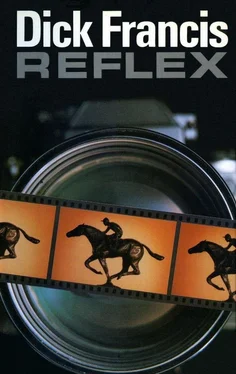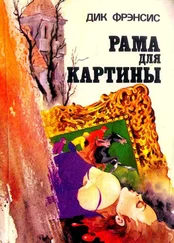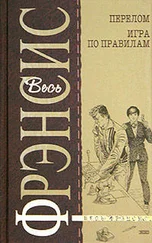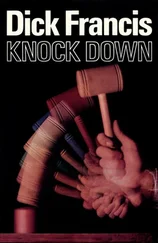I had never actually lived with my mother, except for a traumatic week or two now and then. We had had no house, no address, no permanent base. Herself always on the move, she had solved the problem of what to do with me by simply dumping me for varying periods with a long succession of mostly astonished married friends, who had been, in retrospect, remarkably tolerant.
‘Do look after Philip for me for a few days, darling,’ she would say, giving me a push towards yet another strange lady. ‘Life is so unutterably cluttered just now and I’m at my wits’ end to know what to do with him, you know how it is, so, darling Deborah... (or Miranda, or Chloe, or Samantha, or anyone else under the sun)... do be an absolute sweetie, and I’ll pick him up on Saturday, I promise.’ And mostly she would have soundly kissed darling Deborah or Miranda or Chloe or Samantha and gone off with a wave in a cloud of Joy.
Saturdays came and my mother didn’t, but she always turned up in the end, full of flutter and laughter and gushing thanks, retrieving her parcel, so to speak, from the left luggage office. I could remain uncollected for days or for weeks or for months: I never knew which in advance, and nor, I suspect, did my hosts. Mostly, I think, she paid something towards my keep, but it was all done with a giggle.
She was, even to my eyes, deliciously pretty, to the extent that people hugged her and indulged her and lit up when she was around. Only later, when they were left literally holding the baby, did the doubts creep in. I became a bewildered silent child forever tip-toeing nervously around so as not to give offence, perennially frightened that someone, one day, would abandon me altogether out in the street.
Looking back, I knew I owed a great deal to Samantha, Deborah, Chloe, et al. I never went hungry, was never ill-treated, nor was ever, in the end, totally rejected. Occasionally people took me in twice or three times, sometimes with welcome, mostly with resignation. When I was three or four someone in long hair and bangles and an ethnic smock taught me to read and write, but I never stayed anywhere long enough to be formally sent to school. It was an extraordinary, disorientating and rootless existence from which I emerged at twelve, when I was dumped in my first long-stay home, able to do almost any job around the house and unable to love.
She left me with two photographers, Duncan and Charlie, standing in their big bare-floored studio that had a darkroom, a bathroom, a gas ring and a bed behind a curtain.
‘Darlings, look after him until Saturday, there’s a sweet pair of lambs...’ And although birthday cards arrived, and presents at Christmas, I didn’t see her again for three years. Then when Duncan departed she swooped in one day and took me away from Charlie, and drove me down to a racehorse trainer and his wife in Hampshire, telling those bemused friends, ‘It’s only until Saturday, darlings, and he’s fifteen and strong, he’ll muck out the horses for you, and things like that...’
Cards and presents arrived for two years or so, always without an address to reply to. On my eighteenth birthday there was no card, and no present the following Christmas, and I’d never heard from her again.
She must have died, I had come to understand, from drugs. There was a great deal, as I grew older, that I’d sorted out and understood.
The old woman glared across the room, as unforgiving and destructive as ever, and still angry at what I’d said.
‘You won’t get far with me if you talk like that,’ she said.
‘I don’t want to get far.’ I stood up. ‘This visit is pointless. If you wanted to find your daughter you should have looked twenty years ago. And as for me... I wouldn’t find her for you, even if I could.’
‘I don’t want you to find Caroline. I dare say you’re right, that she’s dead.’ The idea clearly caused her no grief. ‘I want you to find your sister.’
‘My... what? ’
The hostile dark eyes assessed me shrewdly. ‘You didn’t know you had a sister? Well, you have. I’ll leave you a hundred thousand pounds in my will if you find her and bring her here to me. And don’t think,’ she went on caustically, before I had time to utter, ‘that you can produce any little imposter and expect me to believe it. I’m old but I’m far from a fool. You would have to prove to Mr Folk’s satisfaction that the girl was my grandchild. And Mr Folk would not be easy to convince.’
I scarcely heard the acid words, but felt only a curiously intense thrust of shock. There had been only one of me. One single fruit of the butterfly. I felt an unreasonable but stinging jealousy that she had had another. She had been mine alone, and now I had to share her: to revise and share her memory. I thought in confusion that it was ridiculous to be experiencing at thirty the displacement emotions of two.
‘Well?’ my grandmother said sharply.
‘No,’ I said.
‘It’s a lot of money,’ she snapped.
‘If you’ve got it.’
She was again outraged. ‘You’re insolent!’
‘Oh, sure. Well, if that’s all, I’ll be going.’ I turned and went towards the door.
‘Wait,’ she said urgently. ‘Don’t you even want to see her picture? There’s a photograph of your sister over there on the chest.’
I glanced over my shoulder and saw her nodding towards a chest of drawers across the room. She must have seen the hesitation that slowed my hand on the doorknob because she said with more confidence, ‘Just look at her, then. Why don’t you look?’
Without positively wanting to but impelled by undeniable curiosity I walked over to the chest and looked. There was a snapshot lying there, an ordinary postcard-size family-album print. I picked it up and tilted it towards the light.
A little girl, three or four years old, on a pony.
The child, with shoulder-length brown hair, wore a red and white striped T-shirt and a pair of jeans. The pony was an unremarkable Welsh grey, with clean-looking tack. Photographed in what was evidently a stable yard, they both looked contented and well fed, but the photographer had been standing too far away to bring out much detail in the child’s face. Enlargement would help to some extent.
I turned the print over, but there was nothing on the back of it to indicate where it had come from, or who had held the camera.
Vaguely disappointed, I put it down again on the chest and saw, with a wince of nostalgia, an envelope lying there addressed in my mother’s handwriting. Addressed to my grandmother, Mrs Lavinia Nore, at the old house in Northamptonshire where I’d had to wait in the hall.
In the envelope, a letter.
‘What are you doing?’ said my grandmother in alarm.
‘Reading a letter from my mother.’
‘But I... That letter shouldn’t be out. Put it down at once. I thought it was in the drawer.’
I ignored her. The loopy, extravagant, extrovert writing came as freshly to me off the paper as if she’d been there in the room, gushing and half laughing, calling out as always for help.
That letter, dated only October 2nd, was no joke.
Dear Mother,
I know I said I would never ask you for anything ever again but I’m having one more try because I still hope, silly me, that one day you might change your mind. I am sending you a photograph of my daughter Amanda, your granddaughter. She is very sweet and darling and she’s three now, and she needs a proper home and to go to school and everything, and I know you wouldn’t want a child around but if you’d just give her an allowance or even do one of those covenant things for her, she could live with some perfectly angelic people who love her and want to keep her but simply can’t afford everything for another child as they’ve three of their own already. If you could pay something regularly into their bank account you wouldn’t even notice it and it would mean your granddaughter was brought up in a happy home and I am so desperate to get that for her that I’m writing to you now.
Читать дальше




